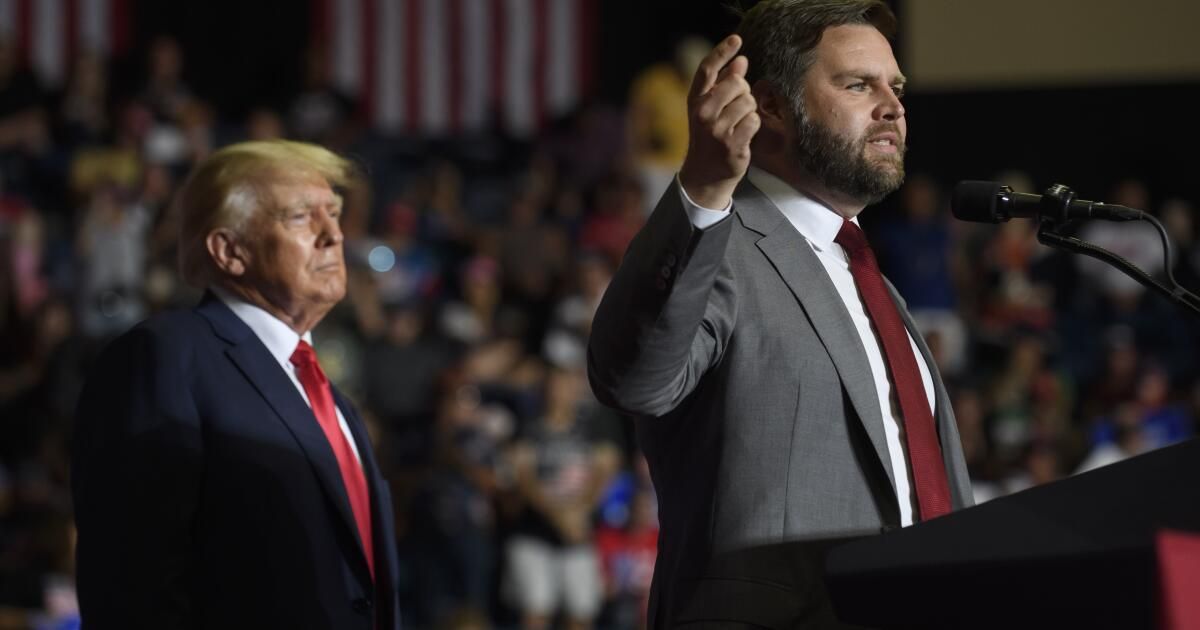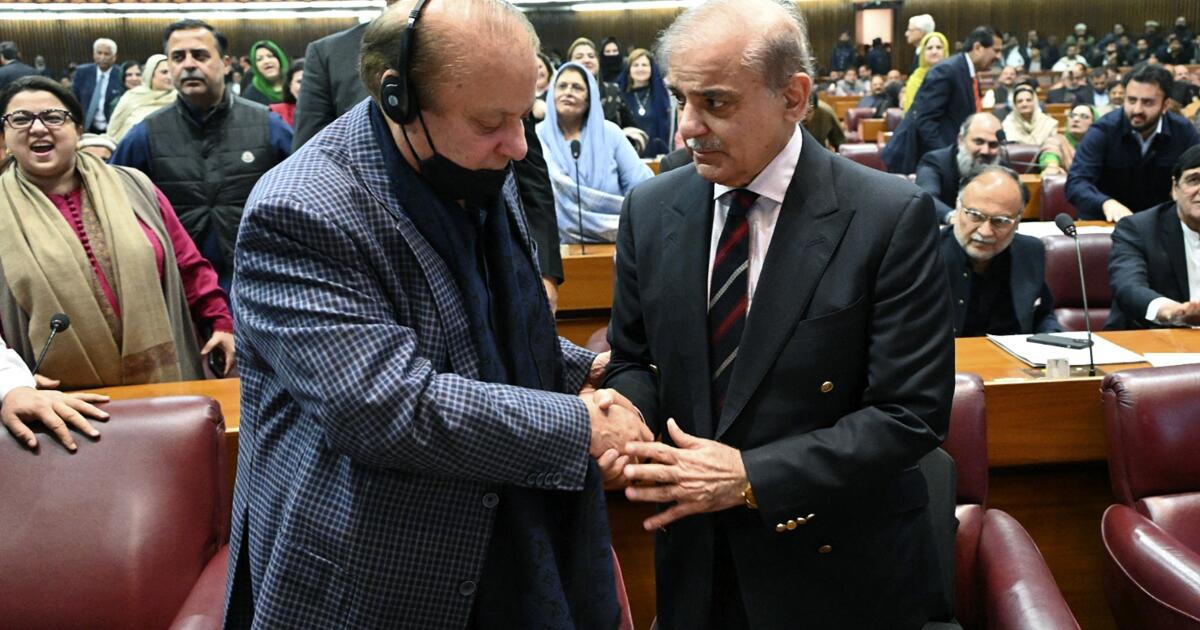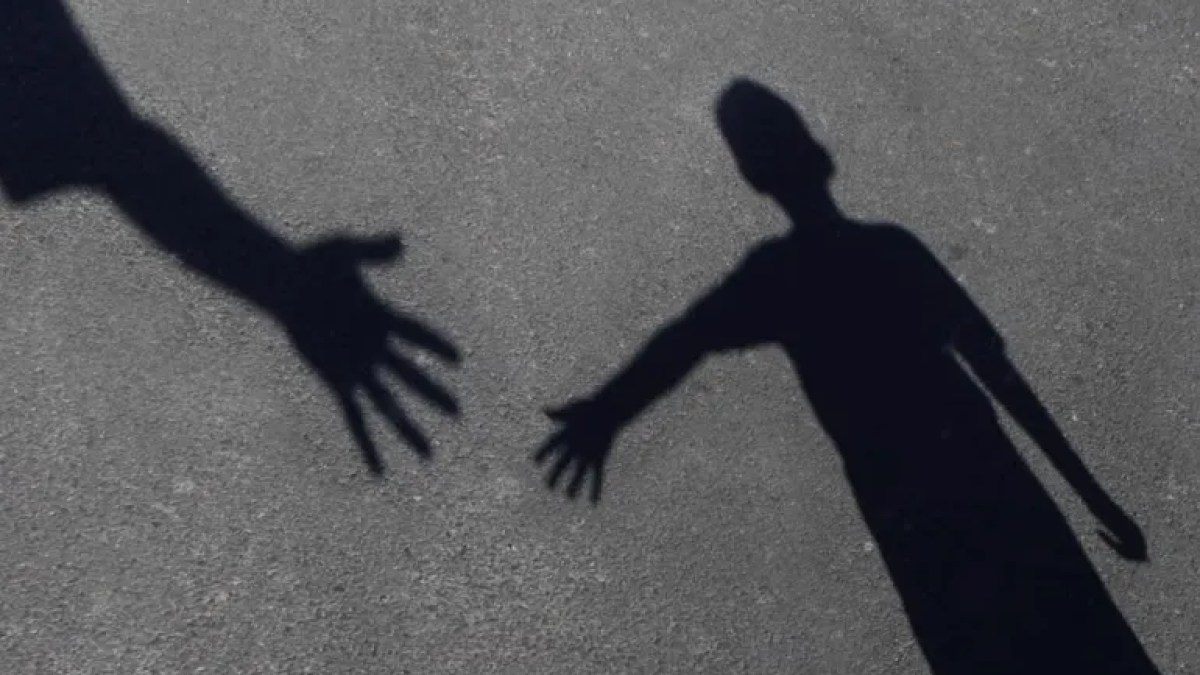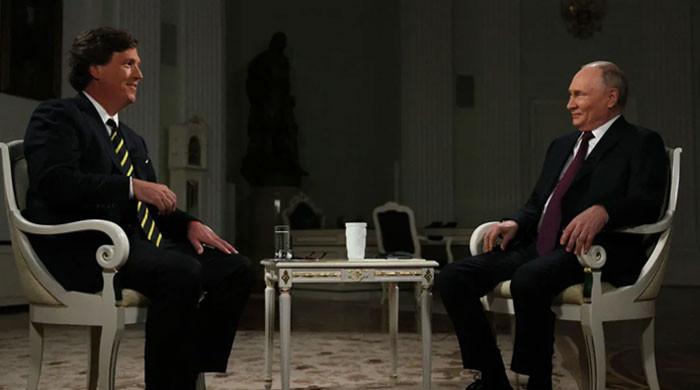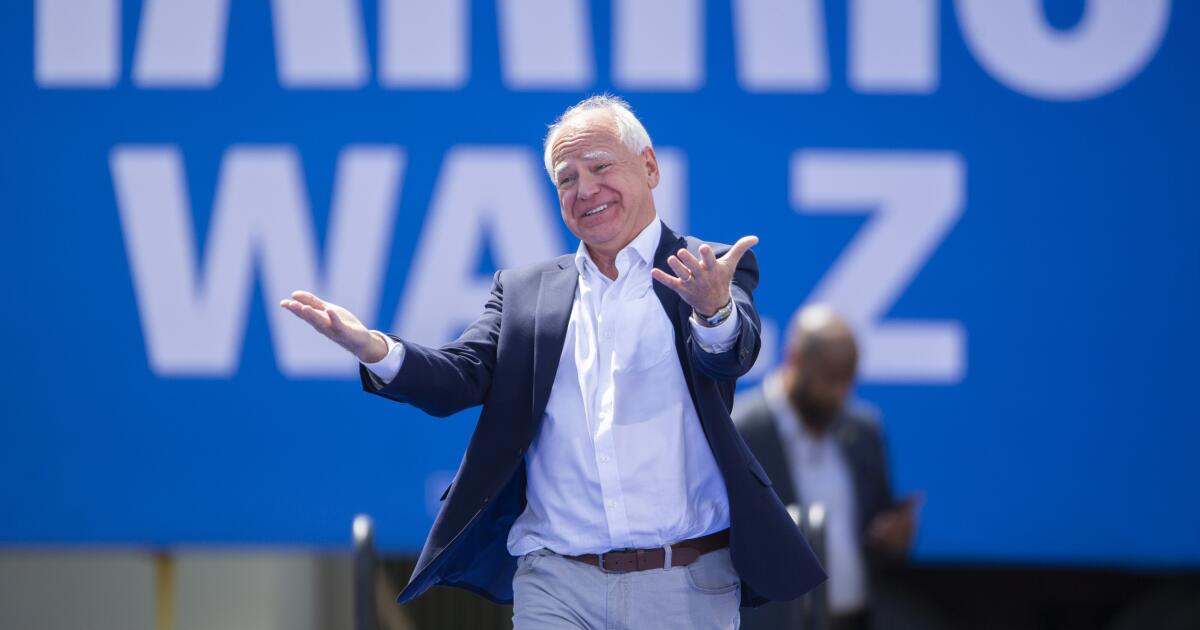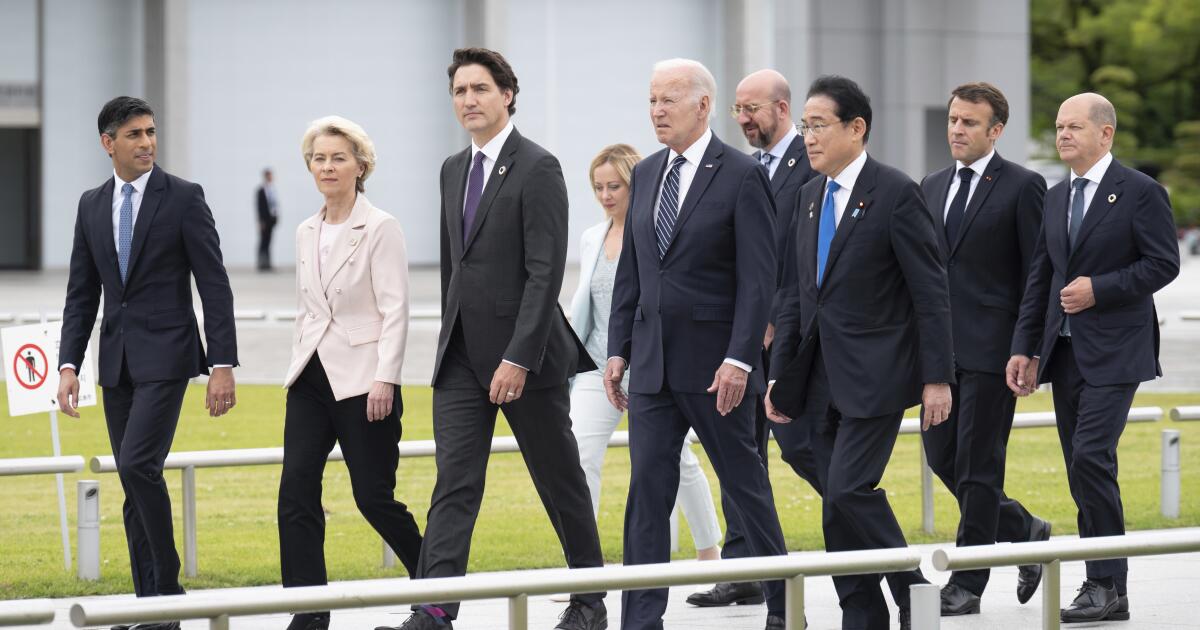JD Vance, the Ohio senator and author of the acclaimed memoir “Hillbilly Elegy,” will be the Republican vice presidential nominee, former President Trump announced Monday.
“As Vice President, JD will continue to fight for our Constitution, support our troops, and do everything he can to help me MAKE AMERICA GREAT AGAIN,” Trump said in a post on Truth Social.
Though he once positioned himself to Republicans as an alternative to Trump (he once compared Trump to a “cultural heroine”), Vance has over time become one of the former president’s most fervent supporters and defenders.
Trump's decision defied speculation early in the campaign that the former president would choose a person of color or a woman to broaden his political base. Instead, Trump-Vance creates the kind of team found throughout American history: two men, both white, though Trump, at 78, is twice the age of the 39-year-old Vance.
Vance, whose full name is James David Vance, will turn 40 in August. Like his wife, Usha Chilukuri Vance, he holds a law degree from Yale University, where they met. They have three children.
For weeks, Trump has reportedly been courting Vance, along with Florida Sen. Marco Rubio and North Dakota Gov. Doug Burgum, as potential vice presidential candidates, lengthening the suspense of the announcement and drawing comparisons to a casting call from his time as the boss of the reality show “The Apprentice.”
“Donald Trump was a success,” Vance said in a promotional video released by the campaign moments after Trump’s announcement. “The results were good and we could have a growing economy and a peaceful world if we just bring Donald Trump back for round two.”
In a notable departure from historical norms, Trump chose a different running mate from his first term, former Vice President Mike Pence, who fell out of favor with Trump when he rejected calls from his former boss to reject the 2020 election results.
Pence's decision to certify the 2020 election results, amid the chaos of the January 6, 2021, insurrection at the Capitol, prompted protesters to chant, “Hang Mike Pence!” Pence said earlier this year that he would not support Trump for president.
“Donald Trump chose JD Vance as his running mate because Vance will do what Mike Pence will not do on January 6th: go out of his way to support Trump and his extreme MAGA agenda, even if it means breaking the law and no matter the harm it does to the American people,” Jen O’Malley Dillon, chair of Biden-Harris 2024, said in a statement.
Vance gained international recognition for his 2016 best-selling memoir, “Hillbilly Elegy: A Memoir of a Family and Culture in Crisis,” which details Vance’s childhood in Middletown, Ohio, a steel mill town in the American heartland.
Vance described his mother, who became pregnant as a teenager, as someone who struggled with addiction, mental health issues and unstable relationships. Vance went to live with his grandmother, a hard-working woman he affectionately calls Mamaw, from Kentucky.
“Hillbilly Elegy” reads like a love letter to Vance’s family, his struggles with addiction, his troubled relationships and his intimate love. But perhaps more than that, it’s an epistle about the plight of the white working class, the very demographic Trump sees as the cornerstone of his base.
Vance was not always on Trump's side.
In an interview in 2016, the year Trump first ran for president, he said: “I’m not a Trump supporter, but I even get a little attached and a little bit gleeful when he says certain things during the campaign, when he criticizes elites in such strong language; it’s kind of refreshing, even if you don’t agree with the substance of his comments.”
That same year, in an article for The Atlantic, She wrote: “Trump is the cultural hero. He makes some people feel better for a while, but he can’t fix what ails them, and one day they will realize that.”
That view has changed. “I actually think Trump is a much better model of a statesman — he’s tough, he’s funny and he says things unfiltered at times,” Vance said in an interview last month. “But when it comes to making actual decisions, he’s much more careful and cautious than anyone currently representing the country.”
Vance, already an outspoken critic of Democrats and President Biden, has become even more so recently. This week he even blamed Democrats for the attempted assassination of Trump, although the shooter's motives remain unknown.
“Today is not an isolated incident,” he posted on social media platform X. “The central premise of the Biden campaign is that President Donald Trump is an authoritarian fascist who must be stopped at all costs. That rhetoric directly led to the attempted assassination of President Trump.”
Vance served in the Marine Corps in Iraq before attending Ohio State University and Yale Law School. He then moved to San Francisco and worked as an investor for the Silicon Valley venture capital firm Mithril Capital, becoming a protégé of Peter Thiel, a one-time Republican megadonor who gave $10 million to Vance’s Senate campaign. Thiel previously donated to Trump but told The Atlantic he would not donate to any politician in the 2024 election.
“When the Twin Towers fell, J.D. Vance enlisted in the Marine Corps, enthusiastic about bringing justice to America’s enemies. He later came to believe that the Forever Wars were a mistake,” David Sacks, a Silicon Valley venture capitalist who recently hosted a fundraiser for Trump, wrote in X. “This is the man I want at Trump’s side: an American patriot, with the courage to fight America’s wars but the wisdom to know when to avoid them.”
“Hillbilly Elegy,” which was later made into a Netflix movie, launched Vance to international stardom. He wrote op-eds and reportedly harbored presidential aspirations with close advisers.
In a 2017 essay in the New York Times, Vance wrote about identifying parts of himself in former presidents Clinton and Obama, who also grew up in disadvantaged backgrounds, raised largely by their grandparents. Of Obama, he wrote: “One of the great failures of recent political history is that the Republican Party was too often unable to disconnect legitimate policy disagreements from the fact that the president himself is an admirable man.”
Vance may echo the same sentiment toward his new boss, about whom he spilled much ink warning the United States during the 2016 election.
“During this election season, it seems that many Americans have turned to a new painkiller. This one, too, promises a quick escape from life’s cares, an easy solution to the mounting social problems of American communities and culture,” Vance wrote in the piece for The Atlantic. “It enters minds not through the lungs or veins, but through the eyes and ears, and its name is Donald Trump.”
Six years later, however, Trump singled out Vance in a competitive Ohio Senate race, endorsing him in the 2022 midterm elections. Vance rose to the front of the pack and won against seasoned Democrat Tim Ryan.
Just months into his first Senate term, Vance was faced with a crisis in his district: a train derailed in East Palestine. But as his term progressed, Vance turned his attention to more election-worthy domestic issues: immigration, China and Trump’s criminal trials.
Vance soon rose to the top of Trump's list of vice presidential candidates.

